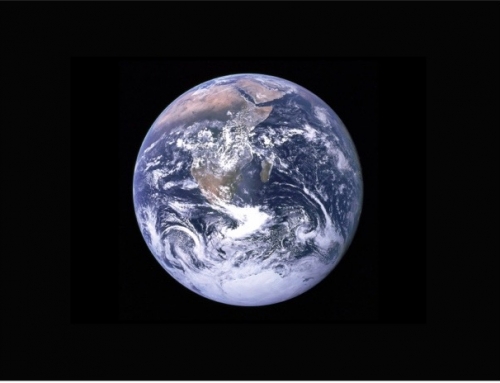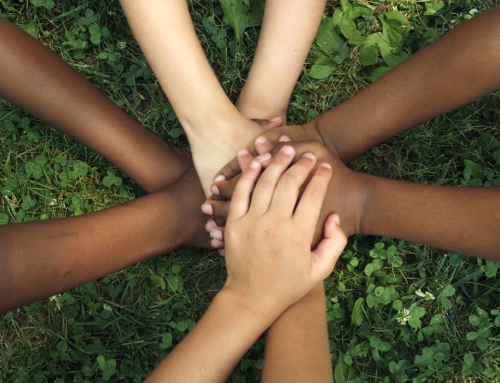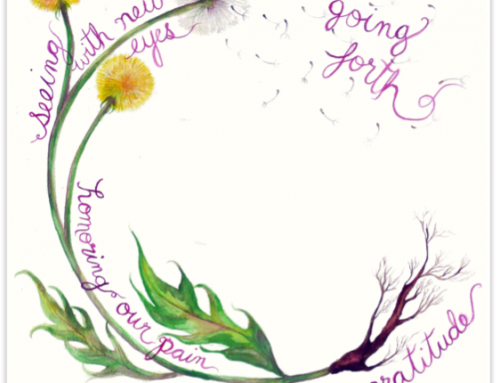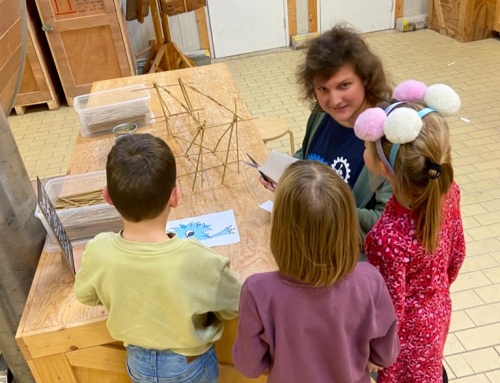
I believe the small moments in life, those unexpected encounters, create happiness and joy. To extend this thought, I also believe that those small moments are the ignitions for change. Looking at the concept of a Compassionate Community, we need these small changes to make the community flourish. For this reason, I would like to dive deeper into ordinary and extraordinary moments, how they affect our lives, how to stimulate positivity and happiness and eventually ignite change.
Mundane moments
Today, I was looking through an old family photo album. All these pictures consisted of major events in my life – birthdays, vacations, going to amusement parks, dance performances, etc. Since the digital age, it is so easy to take pictures. However, many have fewer pictures of the less remarkable, ordinary moments. Yet, for me, it was a mundane picture that made my day: going down a slide with my dog in the old garden of my grandparents while my mom is in the back of the picture talking to my granddad with a glass of wine. It was just a flashback to a time that I had completely forgotten about. It was a mundane moment that was very authentic. Ting Zhang, advocates that everyone ought to pay much more attention to ordinary moments because they might be more important than you would expect (2014).
‘What is ordinary now actually becomes more extraordinary in the future – and more extraordinary than we might expect’ claims Zhang (2014) based upon the research of the unexpected value of rediscovery. During this study, the researchers found that our accuracy in predicting how we will feel about things in the future is not accurate (Zhang, 2014). Additionally, we cannot estimate the futures emotional impact of negative and positive effects: we are robbing ourselves of opportunities for happiness. Some of the things that we encounter today will likely seem mundane as not be worth capturing. However, then we take this moment away to rediscover them.
To illustrate, until a year ago we did not think about how special it is to go outside, have a drink at our favourite restaurant with our friends. Or maybe, an unexpected encounter with someone in the park. Fast forward to the current time, we cannot meet each other due to restrictions, everything we do is online and unexpected encounters do not exist anymore. If you would have asked yourself the question a year ago ‘is this moment worth capturing?’ many will say no. However, at this moment, would you answer the question differently? And how would you feel now, if you had this picture with your friends, in your favourite restaurant, laughing, having a drink and enjoy the simplicity of the presence of each other?
(Re)discovery
Why do we underestimate the joy of rediscovery? A study by Karen Reivich, professor of positive psychology and specialised in resilience, shows that this can be led back to our personality that will never stay the same. Not only do people make the mistake of thinking that the person who they are today will be the person who they will be in the future, but we also tend to believe that the details that we might consider mundane today will stay in that status which makes our mind forget the details of the occurrence. Reivich (2020) advocates the following statement ‘the truth is that our memories are not perfect. They fade, are overwritten and change in time. And in that exact moment that we claim an occurrence of being too mundane to remember, we take away the moment to rediscover it.’
In the following studies about the joy rediscovering can bring, researchers anticipate ordinary and extraordinary occurrences, curiosity and how meaningful it is (Harvard University, 2014). Zhang (2014) speaks about how we often think that those mundane moments are not worthy of being discovered. However, the studies prove them wrong. She continues that the studies highlighted the importance of not taking the present for granted and documenting the mundane moments of daily life to give our future selves the joy of rediscovering them (2014).
If you would imagine a Compassionate Community, this would work following the ideas of Zhang. Compassion is one of our most natural forms of emotion and therefore, often it is not seen as worth capturing. During an interview with Julian Abel, socialist and professor of Compassionate Communities, he advocates the following ‘compassion is not something you feel for yourself, you express it to others. Some people are rich in the feeling of compassion by others. But can you answer that question as well as it comes to the people you surround?’. In this statement, he elaborated on the importance of not taking something for granted and create awareness for this.
What if…
All these thoughts ignited something in me to question ‘what if we learn to capture these moments and appreciate them?’. I already advocated in one of the previous blogs that I believe in moments of uncertainty, the chances for change are incredible. So, if I would interpret this concept of rediscovering our ordinary moments to a current situation during this crisis, it matches. During the past weeks, I have been conducting various interviews with experts, involved, and interested in a Compassionate Community. Often, I start with the question ‘what do you miss due to this crisis?’ The most common answers relate to ordinary moments that cannot take place right now. But then, I turn the question around what have you learned to appreciate during this crisis? Often people start to smile and explain that they learned to love the mundane.
This insight made me realise that life is not made up for the big moments. It is the small moments brought together that will continue bringing you positivity and happiness in life. You can think that the only thing left now is to make them count. But, before we do that, we need to feel the intrinsic motivation to work on this challenge and to create awareness on this topic. Subsequently, I believe that you need to have an experience or awareness moment before you can fully understand the importance and ignite a change. Jaap Bressers from foundation Carlos Momentje inspired in this.
Jaap (n.d.) became paralysed when he was 21 due to a diving incident in Portugal. When he would wake up, he screamed for help since he could not feel his body anymore. There was limited attention to this since this is a normal reaction after a dive incident. Only Carlos, a doctor, did it differently. When such a moment of anxiety occurred, he would come up to Jaap, place his hand on his shoulder where he could feel something and say, ‘it is okay’. Jaap claims that Carlos saved his life, mentally, by doing this. This small moment of kindness, thinking of someone’s needs, made Jaap feel strong. Eventually, he created a platform called ‘Carlos moments’ to show the differences a small gesture can make (Bresser, 2016).
How does this ignite change?
In the example of Jaap, it is clearly stated how a small moment can change your whole view of how you perceive reality. I believe that when you leave the known behind, you can learn how to add value to the little things. Again, this crisis is a perfect example of that. In the old reality, we could hug each other when we saw that someone needed it. However, we did not think about it anything more. Now, we are not allowed to have physical contact to contain the virus, so, we must be creative and find different ways how to act according to the needs that we feel. You are challenged to do it differently, not because the old way did not work but because we have to adjust to a new reality. Subsequently, this is where our creativity comes in. The beauty of this is that we often do not realise how much we still can do but when we do so, we learn to appreciate it.
We learn how to transform setbacks, roadblocks, and inabilities into try-out, going into a different direction and possibilities. And at that exact moment, if you realise it or not, you ignite change. In some way, you capture your ordinary activity and notice that it is not the way how it works anymore. But from that lesson, you can learn to find a different approach and always continue to strive for what you desire. In that case, there is a certain commitment to the challenge. During an interview with Julian Abel, director of Compassionate Communities UK, he stated that you only read and hear about the success stories, but you forget, just like the mundane moments, that a lot has happened before that. On their first try, not everything works out as how they planned it to be. However, they learned to improve from that point and because they kept continuing you read or hear the story that they tell today’ (Abel, 2021).
What now?
Based on this whole story, I question ‘if one small gesture can make a change, can we all become the ignition of these small changes?’. Subsequently, ‘if we become more aware of what already happens, can we learn to appreciate this?’. As an individual, I learned to recognize and appreciate these ‘extraordinary ordinary’ moments. I have embedded it in my values and how I behave during situations. Additionally, I have also interwoven this as how I work as a professional. And again, I believe that these small moments together create a platform for a bigger movement. So, yes, I believe in capturing these small moments for the better. I hope to re-discover those while working on a challenge and see new possibilities. And most importantly, I would like to show that everyone can be at this point and make a change.
So, I would like to conclude this story with a statement. We will always find a reason to be happy, to continue in life, to face the challenges that we see. But would it not be lovely if we did this by acknowledging and stimulating small moments that bring us happiness and confidence, that we can rediscover those in the future and start a change from a very small step. Eventually, we can co-create and co-stimulate the small changes that we made into a bigger movement. As long as you have your perspective focussed on the little things that matter and believe that they actually can make a very big difference in your life.
Bibliography
Bresser, J. (n.d.). Carlos momentjes. Retrieved 15 March 2021, from https://www.jaapbressers.nl/carlosmomentjes/
Reivich, K. (2021). Karen Reivich | Positive Psychology Center. Retrieved 15 March 2021, from https://ppc.sas.upenn.edu/people/karen-reivich
Young, K. (2020, August 24). Happiness: Why It’s The Small Things (And How to Make Them Count). Retrieved 15 March 2021, from https://www.heysigmund.com/happiness-the-small-things/
Zhang, T. (2014, October 9). Harvard Study Finds We Undervalue The ‘Mundane Moments’ In Our Lives | Radio Boston. Retrieved 15 March 2021, from https://www.wbur.org/radioboston/2014/10/06/harvard-mundane-study
Zhang, T., Kim, T., Brooks, A. W., Gino, F., & Norton, M. I. (2014). A “Present” for the Future. Psychological Science, 25(10), 1851–1860. https://doi.org/10.1177/0956797614542274





